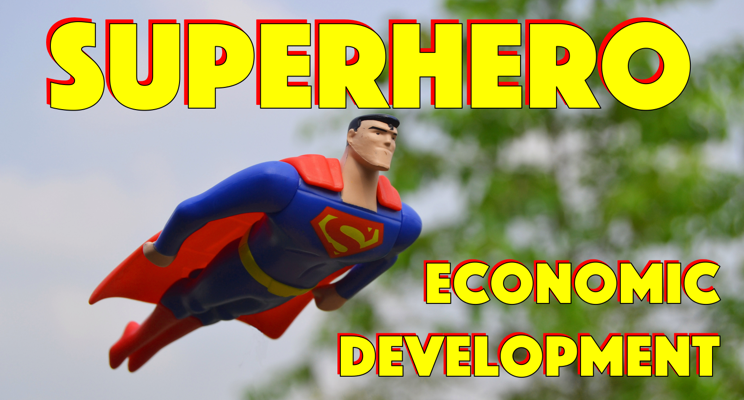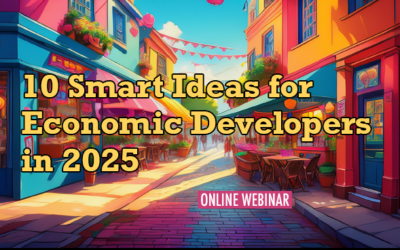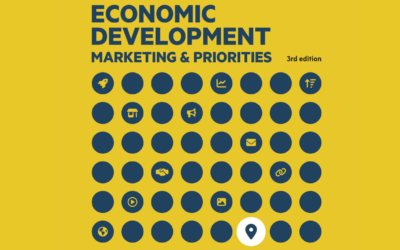
The old superhero of economic development was the one that relocated the big business from out-of-town, bringing a lot of high-paying jobs. Today, that economic developer may becoming vilified by local residents.
Within the economic development profession there may be respect, awe, and a bit of jealousy toward the economic development organizations (EDOs) that successfully bring the high-profile corporate location project to their community. But the local residents living in the community that the EDO serves are growing to not share the same sentiment and are instead unhappy about the negative externalities of big, new, high-tech, high-paying companies.
Unshared Economic Growth
Some reasons for this change are that the most prized jobs for economic developers to bring to their community are brand name and high-growth tech companies. These companies overwhelmingly only consider major metro areas for relocation/expansion that are already desirable areas with urban amenities. The companies also fit the requirements that economic developers typically try to target: fast-growing, high-salary-paying, high-tech industries.
Residents living in already economically robust metro areas are struggling with their own unique problems including rapidly rising costs of living, growing transportation congestion, increasing rents, unattainable costs of home ownership, gentrification, displacement of long-time friends, and more. Even wealthy people living in these places are experiencing personal challenges associated with their region’s economic success.
While economic developers and politicians may see professional success in big business attraction, local residents are discovering that as more and higher paying jobs come to their community, it exacerbates the rising costs of housing including creating housing scarcity, increases their commutes as more people are added to the roads, and changes the cultural fabric of the place where they may have lived their whole lives.
Another characteristic that is gaining scrutiny and being seen as unfair is that the high-profile business attraction projects are seen as corporate welfare for the wealthiest people and companies in the world.
The Amazon HQ2 project captures many of the challenges previously described. Amazon is trading places as the most valuable company in the world and is run by the wealthiest man in the world. The company will get significant public incentives to locate in the New York City and Washington DC metros in addition to the many incentives they have received previously. Both of these metros are already in the top 10 most expensive places to live in the USA. Adding 25,000 new Amazon jobs with an average salary of $150,000 in each metro is going to make these new employees higher paid than most residents in these areas, giving them a purchasing power advantage, which will raise the cost of living further. Local residents aren’t excited about this supposedly good news which they anticipate will instead result in no benefits for themselves and probably disadvantage their future.
The New Economic Development Superhero
What’s missing in the idea and tradition of the superhero economic developer is that it loses sight of what the authentic superhero actually does: The true superhero fights for the weak.
Who are the weak in the world of economic development superheroes? They are all around us.

1. The Poor
The poor are in more need of economic development than anyone, yet few economic development organizations have any programs or focus on the poor. They leave helping the poor to someone else, perhaps hoping a non-profit or governmental agency will lift the poor out of poverty.
The very metrics of traditional economic development lead economic developers to ignore the poor. For example, a common metric of economic development success is raising the community’s average income through increasing the number of high-paying jobs. That means a focus on the highest paying jobs for which that the poor will unlikely be qualified to be hired.
The poor need economic developers to facilitate the expansion of jobs they can do and for which they can be hired, which might require a focus on attracting jobs that lower the community’s average income. Working counter to traditional economic development metrics can actually improve economic development for the poor.
Consider these as new economic development measurement goals:
- Number of community residents moved out of poverty
- Number of people in the lowest quintile of income that move into higher quintiles of income
- Number of people who previously stopped job searching (and who were no longer even counted in unemployment statistics) who have become employed.
With a focus on these measurable goals you can reorient your EDO to meaningful impacts which help the poorest in your community.

2. Small Business
Big businesses have many advantages over small businesses. One of them is that economic developers tend to focus more time, money, and resources toward the biggest and most successful companies. This practice further disadvantages small businesses.
Even the economic development programs that target smaller and local businesses favor the elite. The local and small businesses that get EDO resources through participation in Business Retention and Recruitment (BRE) and Economic Gardening programs are typically only available to the largest and fastest growing companies in town. This excludes the vast majority of companies and small businesses. While some may make the case that the best way to grow an economy is to help the most successful based on traditional economic development measurements, this is no comfort to the 99% of all businesses that are excluded that could benefit from more equitable economic development programs.
A legitimate and historic challenge for economic developers is that there are so many small businesses and it is difficult to serve all of them due to limited staff resources. This may have been true in the past, but the emergence of online economic development software powered by super-computing, big data, and information visualization, and which is designed to help all local businesses at scale, makes this obstacle no longer relevant today.
Small businesses are responsible for approximately half of all jobs and Gross Domestic Product. They matter a lot. It doesn’t matter if they aren’t big, fast-growing, or in popular industries. They deserve economic developers’ time, attention, and resources based on the fair value of their contribution to the economy.

3. Women
Long-term economic growth comes from what economist call “human capital,” which is a combination of health and education. EDOs almost never focus on these things even though they are the twin engines that most drive long-term economic growth and prosperity.
One of the most effective ways to enhance human capital is by focusing on helping women. As the Gates Foundation points out, women’s health is tied to long term community health because women spend their money differently than men; women spend more of it on the health and education of their children, which creates generational human capital advances.

4. The Marginalized
Those that are disadvantaged in society are also disadvantaged in their ability to fully realize their economic opportunities and participate in the maximum economic growth of your community. If you identify those that are most marginalized and help them overcome the structural/societal barriers to their personal economic development you can unlock their economic productivity to grow your local economy.
While not every individual from every marginalized group is disadvantaged in exactly the same way, people within these groups are generally disempowered. They include women, LGBTQ, youth, seniors, racial minorities, veterans, religious minorities, foreigners, poor, differently abled, refugees, and other marginalized populations. As groups, these people are both intentionally and unconsciously discriminated against in ways that limit their ability to fully participate in your community’s full economic development.
Learning From Superman
As we rethink the work of today’s superhero economic developer it is worth considering the message of a foreign refugee that secretly worked in the United States to live a better life under a false name so as to not reveal his identity as a non-citizen. Most people know him as Superman.
In Superman, Volume 1, #156, “The Last Days of Superman,” Superman is dying from exposure to Kryptonite and wants to leave the world with a final message. Although his message in this comic book published in 1962 uses the language of the time which excludes women, perhaps the deeper intent of what Superman said is sound advice to the superhero economic developers of our time:
“Do good to others and every man can be a Superman.”




